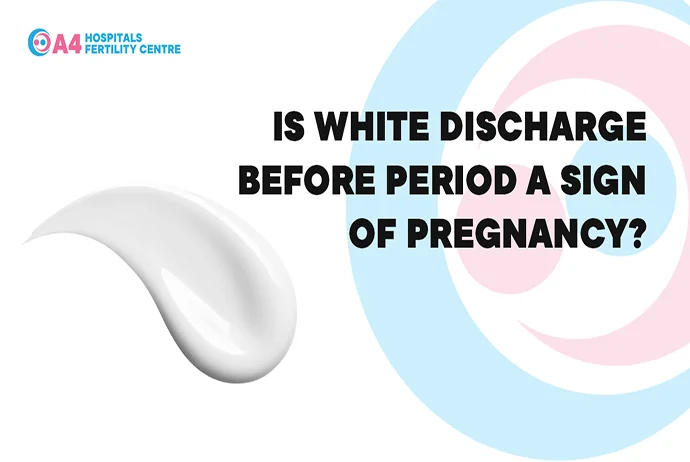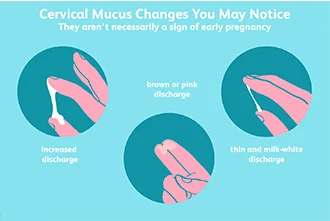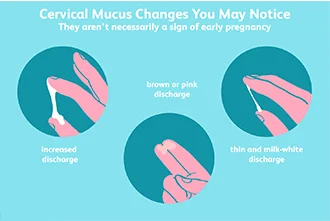
Dr. Aruna Ashok MBBS, MS OG, DNB OG
- Clinical Director

Discharge before periods is common and happens because of hormonal changes. It usually looks white or clear. Sometimes, it means your period is coming soon. The discharge can change in texture and color during your menstrual cycle. However, in early pregnancy, there might be light spotting, called "implantation bleeding." It occurs when the embryo attaches to the uterus. It might have a pink or brown color. Pregnancy discharge may be lighter and shorter in duration compared to menstruation. Both things can look the same, so it's good to look at other signs and timing to tell them apart right. It's smart to see a doctor for the right diagnosis.
During the monthly cycle, our bodies are always going through different changes. One of these changes is having vaginal discharge, which can be different in substance, colour, and amount. Even though white discharge before your period is normal, many women wonder if it could also be a sign of pregnancy. In this blog, we'll talk about white discharge before your period and how it might be related to being pregnant.


Sexual discharge is normal for women and is an important part of keeping their sexual health in good shape. It is made up of mucus from the cervix, bacteria, and dead cells. The body gets rid of it to keep the vagina clean and free of diseases. During different stages of the monthly cycle, the discharge can be different in terms of how thick it is and what colour it is.
Most of the time, white discharge before your period is regular and a normal part of the menstrual cycle. After ovulation, it usually happens during the luteal phase, which is the second half of the period. The discharge may be thick, sticky, or smooth and has no smell most of the time.
Hormones are a big part of how the monthly cycle works and why the discharge from the uterus changes. During the luteal phase, the amount of progesterone rises, which changes the mucus in the cervix. Mucus gets thicker and stickier because progesterone levels go up. This is what causes the white discharge that is seen before a period.
Even though it is normal to have white discharge before your period, it is important to know that this alone does not mean you are pregnant. But early pregnancy can sometimes cause changes in the vaginal discharge. This can make it hard for some women to tell the difference between normal period discharge and early pregnancy discharge.
Some women may have more vaginal discharge in the early stages of pregnancy. This discharge is often thin, milky, and white in colour. This is called leukorrhea, and it is caused by hormonal changes that make more blood move to the vaginal area. It usually doesn't have a smell and doesn't itch or irritate.
Even though premenstrual and pregnancy discharge may look the same, there are some changes that can help you tell the difference. Discharge during pregnancy is likely to last longer than normal premenstrual discharge. Also, early pregnancy signs like sore breasts, fatigue, nausea, and missed periods can happen as pregnancy discharge.
To find out for sure if you are pregnant, you must take a home pregnancy test or go to a doctor for a blood test. Home pregnancy tests look for a hormone called hCG (human chorionic gonadotropin) in pee. This hormone is made during pregnancy. If you missed your period, it's best to wait until the first day of the next one to take the test.
In conclusion, white discharge before your period is normal and shouldn't worry you. Even though it can sometimes look like early pregnancy discharge, it is not always a sign of pregnancy. If you think you might be pregnant, the best way to find out for sure is to take a home pregnancy test or talk to a doctor.
If you are having trouble getting pregnant or are worried about your fertility, the A4 Fertility Centre can help. A4 Fertility Centre has a team of experienced and caring fertility doctors who can help you get pregnant. They also offer a variety of personalised fertility treatments and solutions to help you on your way to becoming a parent. Visit their website or call them to find out more about their services and set up a meeting. Remember that you are not alone and that there are people and things that can help you.